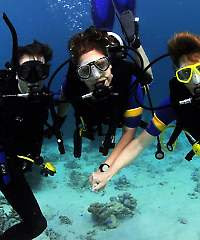Tourism
The business or industry of providing information,accommodations, transportation, and other services to tourists is called tourism.
Tourism is travel for pleasure; also the theory and practice of touring, the business of attracting, accommodating, and entertaining tourists, and the business of operating tours.Tourism may be international, or within the traveler's country.Tourism can be domestic or international, and international.Today tourism is a major source of income for many countries, and affects the economy of both the source and host countries, in some cases being of vital importance.
Why We Choose Tourism
The World Tourism is the best educational, interesting & growing business in the world, in this trade we can be informative about the world and we can explore the different destinations.As students of hotel management we have selected the world tourism as definition that is committed to our educational environment.
Significance Of Tourism
Tourism is an important, even vital, source of income for many countries.Tourism brings in large amounts of income into a local economy in the form of payment for goods and services needed by tourists It also creates opportunities for employment in the service sector of the economy associated with tourism.The service industries which benefit from tourism include transportation services, such as airlines, cruise ships, and taxicabs; hospitality services, such asaccommodations, including hotels and resorts; and entertainment venues, such asamusement parks, casinos, shopping malls, music venues, and theatres. This is in addition to goods bought by tourists, including souvenirs, clothing and other supplies
Types Of Tourism
The type of tourism depends on the reason for travel. Travel can be to destinations that are domestic or international. Domestic tourism involves residents travelling only within their country. Inbound and Outbound tourism both describe types of international tourism.
1. Mass Tourism: It is the most recent phenomenon of the modern tourism. This concept emerged along with the concept of paid holiday. It focuses on more no. of tourists instead of selective or elite tourists. The development of air ways and sea ways has helped to travel many people at once. Many travel agencies focus on package-tourism due to many people.
2. Village and Urban Tourism: In village tourism, all activities are concerned within village. A village is selected as a model village. A few guest room and kitchen are developed without disturbing the village environment. Urban tourism focuses on city tourism where big hotels and restaurants are developed.
3. Cultural Tourism: It is related to the tours to culturally rich places. The tours are arranged to provide knowledge on culture, religion, beliefs, attitudes, social behaviors and so forth.
4. Adventure Tourism: It involves three basic components; an element of risk, higher level of physical involvement, and specialized skills to participate. For e.g. rafting, trekking, bungy-jumping etc.
5. Conference Tourism: Big business-homes, multi-national companies, government etc organize meetings, conventions, conferences that make people visit different places and countries.
6. Eco-Tourism: This type of tourism is the need of modern era. This type of tourism is organized in natural environment and the tourists observe man-nature relationship.
7. Recreational Tourism: It concerns with recreational activities, mostly centralized in big cities. For e.g., casinos at Los Angeles, Night Clubs at Bangkok etc.
8. Health Tourism: This type of tourism was in more demand in late 19th century. People visit different places for better health and refreshed mind.
9. Sustainable Tourism:This concept emphasizes on public participation. It does deal with the study of carrying capacity of the earth.
10. Historical Tourism: It focuses on visiting historically important places like museums, monuments, archaeological areas and so forth.
11. Domestic and International Tourism: Domestic tourism focuses on earning local currency while international tourism focuses on earning foreign currencies.
12. Business and Leisure Tourism: Business category includes tourists visiting for business purposes while that travel for holidays are the leisure travelers.
Importance Of Tourism Industry
1. Employment Opportunities
Tourism industry is also one of the influential sectors. It generates employment opportunities. It provides employment to unskilled, semi-skilled and skilled manpower. Guide, load man etc are the personal or labour required in Tourism industry.
2. Sources of public as well as private income
Tourism industry is the source of income for both public also well as private sector government charges tax, sales tax, service tax etc. which is known as government revenue is the income of public. And handicraft, arts etc are the things that attract tourist and most of them buy them and the seller makers some profit which is called private income.
3. Cultural Exchange
Tourism industry facilities cultural exchange tourist carry over various cultural concepts of other countries where they visit. Local people can learn their language, art, skill, culture etc and vice versa.
4. Publicity of nation
4. Publicity of nation
Nepal is a small country, difficult to be located in the world map. Tourism helps to publicize the country in different parts in the world. It helps to publicize. Nepalese art, skills tradition, cultural beauty and hospitality to the world.
Advantages of Tourism
1. National Economy: It directly helps in developing the economy of the country as the tourists spend money while staying, coming and visiting a country.
2. Employment Generations: People can be employed as tourism officers to a porter to earn livelihood.
3. Cultural Integration: The cultures of different places can be known and exchanged through tourism.
4. National Integration: It helps in development of peace, oneness and unity among the people of a nation.
5. Environmental Awareness: People become aware on environmental neatness, protection and peace in order to develop tourism.
6. Foreign Currency: It is a source of earning foreign currency by the money spent from the tourists.
7. Foreign Languages: By the help of tourism, we can get chance to learn the languages of different places and countries.
Disadvantages of Tourism
- Environmental destruction
- Pollution
- Cultural destruction
- Development of illegal and/or destructive economic activities..





































